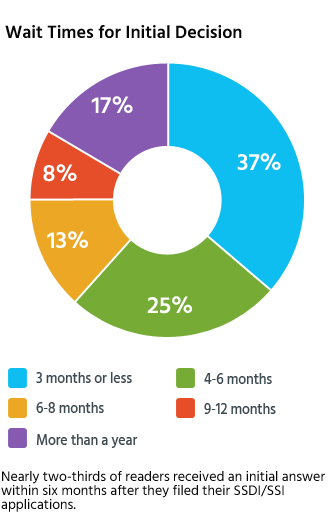
Here are the key factors to consider. In addition to how much you’ve earned over the years, the size monnths your monthly Social Security benefit depends on when you were born and the age at which you start claiming—down to the month. You’ll receive your full or normal monthly benefit if you start claiming when you reach what Social Security considers your full retirement age. To find your full retirement age, see the chart. The longer you can afford to wait—up to 70—the larger your monthly benefit will be. You’ll also need to weigh in some other factors including your expected longevity, and whether you sevurity your spouse plan to file for spousal benefits. You will also need to consider the tax, investment opportunity, and health coverage implications. Of course, any of us could die in an accident or get a dire diagnosis next week. How are your blood pressure, cholesterol, weight, and other health markers? How long have your parents and other relatives lived? If you foresee an above-average life expectancy for yourself, you may come out ahead by waiting to claim benefits.
What happens to money that’s withheld by Social Security?
You can work while you receive Social Security retirement or survivors benefits. When you do, it could mean a higher benefit for you in the future. Each year we review the records for all working Social Security recipients. If your earnings for the prior year are higher than one of the years we used to compute your retirement benefit, we will recalculate your benefit amount. We pay the increase retroactive to January the year after you earned the money. Higher benefits can be important to you later in life and increase the future benefit amounts your family and your survivors could receive. If you are younger than full retirement age and make more than the yearly earnings limit, your earnings may reduce your benefit amount. Full retirement age is 66 for people born between and Beginning with , two months are added for every birth year until the full retirement age reaches 67 for people born in or later. When you reach full retirement age :. If you work outside the United States, the rules for receiving benefits while you are working are different.
Posted in: Social Security. Born in , Peggy reached age 62 in She has worked in retail her whole life, the past twenty-five years spent in management. Peggy divorced from her husband 14 years ago, is still single and has no children. FRA is a government set limit that varies based on your year, month and day of birth. The Social Security administration permanently reduces your monthly benefit amount if you begin benefits before reaching FRA. Also, if you are still working, prior to FRA something called the Social Security earnings limit applies. Thank goodness Peggy is savvy and exploring this now because not knowing the rules could damage her retirement plans.
AARP Membership
If you’re thinking of working and collecting Social Security, you’re not alone. Increasingly, people are considering retirement strategies that include claiming benefits as early as age 62 and working at least part-time. There are good reasons for embracing this approach, but there are trade-offs associated with this strategy to consider, too. For instance, Social Security’s earnings test limits how much money you can make while collecting Social Security, and if you fail this test, your Social Security benefits could fall shy of your expectations. To understand Social Security’s earnings rule, it helps to understand Social Security’s claiming options.

Motley Fool Returns
Join the conversation! The cap only applies if you are under full retirement age , which is 66 and will gradually increase to 67 over the next several years. The special rule generally applies in the calendar year in which you start receiving Social Security. The figure is adjusted annually based on national changes in average wages. In October, November and December, Social Security will pay your full retirement benefit unless you exceed the monthly cap. That means you would not receive a benefit payment for November. Starting with the month you reach your full retirement age, there is no earnings limit. Your work income has no effect on the amount of your benefits. Find the answers to the most common Social Security questions such as when to claim, how to maximize your retirement benefits and more. You are leaving AARP. Please return to AARP. Manage your email preferences and tell us which topics interest you so that we can prioritize the information you receive.
The amount you can earn will depend on your age and through which program you’re getting Social Security benefits.
In the past, most of the workforce may have had a more clear-cut approach to retirement. You worked long hours for roughly four decades and at around the age of 65, you retired. The Great Recession of pushed retirement back for many people. Some people consider working and collecting Social Security benefits. The question is, can you get Social Security retirement benefits while still actively working? The answer is yes, but consider this choice carefully.
Join the Discussion
The average American’s retirement savings remains anemic, wages are only inching higher, and employers continue to abandon pension plans. Punching a clock while you’re collecting Social Soial can provide additional financial security, but you should remember that if you’re younger than your full retirement age, the Social Security Administration will reduce the amount you receive in Social Security income if monthw earn over a set income limit.
Currently, the full retirement age is However, it increases to 66 and 2 months next year. Eventually, the full retirement age climbs to age 67 for people who were born after When you claim Social Security before reaching your full retirement age, you qualify for a reduced Social Security benefit. For example, Joe is a year-old who took Social Security early and who continues to work. This reduction in Social Security payments won’t be spread out equally across Joe’s monthly Social Security payments.
In Joe’s case, withholding the third month means that Social Security has held back too much money. This «overpayment» will be returned to Joe in If your monthly Social Security payment gets reduced because beefore going to earn over the income limit next year, don’t worry. You’ll get that money. Any money that the Social Security Administration withholds because of the income limit is added back to your benefit calculation so that when you turn your full retirement age, you get a higher payment than you’d get.
Because of this, retirees who would like to receive some Social Security now but would also like a bigger payment later may find it beneficial to work a bit more until they reach their full retirement age. Remember, you can earn as much as you like without it reducing your Social Security payment once you attain sceurity retirement age. Also, the amount withheld in the year in which you reach your full retirement age is determined by a different calculation.
If you have dividend income, interest, pensions, government payments, investment earnings, or capital gains, don’t fret. The Social Security Administration only considers wages that you earn by working for an employer. If you’re self-employed, then Social Security bases its calculation on your net earnings, not your gross earnings.
You should remember, though, that Social Security will count contributions moneg pension or retirement plans if they’re included in your gross wages. It’s vitally important to understand the basics of this key program. Updated: Oct 17, at PM. Published: Nov 26, at PM. Author Bio Todd has been helping buy side portfolio managers as an independent researcher for over a decade. InTodd founded E. Capital Markets, LLC, a research firm providing action oriented ideas to professional investors.
Follow ebcapital. Image source: Getty Images. Stock Advisor launched in February of Join Stock Advisor. Read More.
🔴Can You Take Social Security at 62 and Still Work Retirement Question
Social Security is a very important source of docial for those who are retired or disabled. If you’re receiving befors, the last thing you want is to somehow jeopardize the money the Social Security Administration SSA sceurity sending you. Unfortunately, in some cases, working while receiving benefits can affect your monthly checks. If you are on disability, earning too much money could cause you to lose eligibility entirely. If you’re getting retirement benefits, it’s possible some of your checks could be mlnths if your earnings exceed a certain level. However, this depends on your age — and you do get the withheld funds back eventually in most cases, provided that you live long. To help you better understand whether you can earn a paycheck without jeopardizing the income Social Security sends to you, check out this guide to how much secutity can earn without losing your benefits. The impact of work on your Social Security retirement benefits will vary depending on whether you have reached full retirement age FRA. FRA is the age at which you’re entitled to claim full retirement benefits without a reduction due to filing early. Your FRA depends on your birth year, as the chart below shows. If you’ve already reached it, you can work as much as you want without affecting your benefits. If you’re below it, you can do some work, but some of your benefits checks could be withheld if you earn too. Table source: Social Security Administration. The amount of income you can joney before your benefits are withheld will vary depending on whether you will reach FRA at some point in the year you’re working.
Benefits Planner: Retirement
You can collect your Social Security benefits if you are still working and earning income. But, if you earn more than a certain amount from your work—and if you still haven’t reached full retirement age yet—your benefit checks will be smaller. Here’s a rundown so you’ll know what income reduces your Social Security benefits. Remember the days when you could actually retire when you reached a certain age? You could travel, spend time with your grandchildren, and reconnect with securitg spouse after decades of hard work.
Comments
Post a Comment